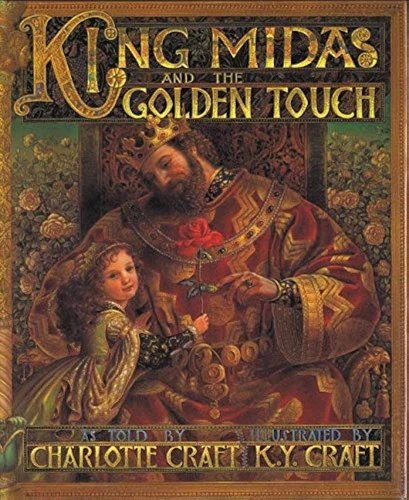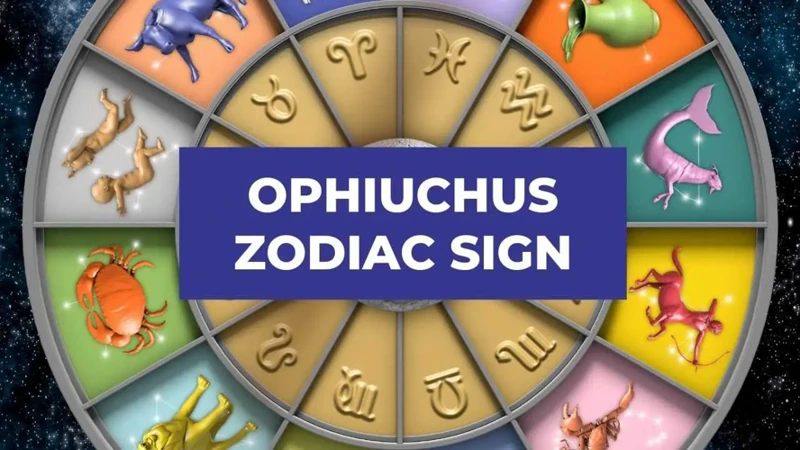In the hallowed annals of ancient mythology, there exists a tale shrouded in both fascination and cautionary wisdom – the myth of King Midas and his infamous golden touch. This enchanting story weaves a web of perplexity, as it explores the rise and fall of a king whose insatiable desire for riches leads him down a treacherous path. From his humble beginnings to his fateful encounter with the god Dionysus, we delve into the depths of Midas’ journey, tracing the consequences of his ill-fated wish and witnessing his redemption. Join us as we unravel the threads of this timeless narrative, uncovering its symbolism, legacy, and the enduring lessons it imparts on humanity.
Contents
- The Rise of King Midas
- The Fateful Wish
- Redemption and Lessons Learned
- The Symbolism and Legacy
- Conclusion
-
Frequently Asked Questions
- 1. What is the myth of King Midas: The Golden Touch?
- 2. Who was King Midas?
- 3. What led to King Midas’ downfall?
- 4. Who was Dionysus and how did he impact King Midas’ life?
- 5. What were the consequences of King Midas’ golden touch?
- 6. Did King Midas seek redemption for his actions?
- 7. How was King Midas eventually redeemed?
- 8. What is the symbolism behind King Midas’ story?
- 9. How did the myth of King Midas influence art and literature?
- 10. Can we draw any lessons from the tale of King Midas: The Golden Touch?
- References
-
Frequently Asked Questions
- 1. Was King Midas a real historical figure?
- 2. How did King Midas acquire the golden touch?
- 3. What were the consequences of King Midas’ golden touch?
- 4. How did King Midas seek redemption?
- 5. What is the symbolism behind the story of King Midas?
- 6. How did the myth of King Midas influence art and literature?
- 7. Are there any other myths or legends associated with King Midas?
- 8. How does the story of King Midas compare to other myths in Greek mythology?
- 9. Is there any archaeological evidence related to King Midas?
- 10. What can we learn from the myth of King Midas?
- References
- Read More
The Rise of King Midas

Amidst the annals of ancient lore, the rise of King Midas emerges as a tale veiled in mystery and fascination. Born in humble origins, little is known of Midas’ childhood and early reign. His ascension to power remains shrouded in obscurity, yet the monarch’s reign would soon take a momentous turn. It was during this reign that the enigmatic Dionysus, the god of wine and revelry, arrived at Midas’ court. This divine encounter would prove to be a pivotal moment in the king’s life, forever altering the course of his destiny. The arrival of Dionysus summoned forth a series of fateful events that would unveil Midas’ true character and ultimately lead him down a treacherous path. The tale of King Midas enthralls and bewitches, a testament to the intricacies and consequences of our desires and the unforeseen influences that shape our lives.
Childhood and Early Reign
The childhood and early reign of King Midas are veiled in obscurity, leaving us with mere fragments and whispers of his past. Little is known about the formative years of this enigmatic figure, who would later become known for his golden touch. It is speculated that Midas may have been born into modest circumstances, with some accounts suggesting he hailed from Phrygia, an ancient kingdom in Anatolia. As the young prince grew, he exhibited qualities that set him apart – a keen intellect, an innate sense of leadership, and a thirst for knowledge. These traits, coupled with his undeniable charm, positioned Midas as a promising heir to the throne. With the passing of time and the death of his father, Midas ascended to the throne and assumed the mantle of leadership, marking the beginning of his early reign. While details surrounding his early rule remain scarce, it is believed that Midas displayed adeptness and fairness in governing his kingdom. However, it is in the shadows of his childhood and early reign that the seeds of Midas’ destiny were sown, ultimately leading him on a tumultuous path defined by his infamous desire for wealth and power. The story of King Midas serves as a poignant reminder that even the most celebrated leaders are shaped by their formative years, and the echoes of those early experiences reverberate through their lives. [Learn more about the influence of astrology on mental wellbeing here.](/astrology-mental-wellbeing/)
The Arrival of Dionysus
The Arrival of Dionysus brought forth a moment of extraordinary intrigue and revelation in the life of King Midas. The enigmatic god of wine and revelry, Dionysus arrived at the court of Midas, bestowing upon the king an invitation to partake in his sacred rites and celebrations. This divine encounter left Midas both enthralled and perplexed, as he marveled at the god’s charismatic presence and inexplicable powers. Dionysus, known for his ability to induce ecstasy and madness, captivated the king and his entourage with his enchanting music and tales of divine revelry. The presence of Dionysus injected a new vibrancy into Midas’ world, awakening within him a sense of hedonistic desire and an insatiable thirst for more. The king reveled in the extravagant feasts and merriment that accompanied the arrival of Dionysus, succumbing to the seductive allure of the god’s influence. Little did Midas know that this encounter would mark the turning point in his life, setting in motion a series of events that would ultimately lead to his downfall. The arrival of Dionysus serves as a cautionary tale, reminding us of the potent forces that can ensnare us when we succumb to our deepest desires and the unforeseen consequences that may follow. The influence of this divine encounter would forever shape the destiny of King Midas, as he unknowingly ventured into a realm of unimaginable consequence and learnings.
The Fateful Wish

Within the myth of King Midas, the fateful wish stands as a pivotal moment that propels the narrative into a realm of unforeseen consequences. Manifesting from the depths of King Midas’ yearning for wealth and opulence, the wish was granted—a supernatural ability to transform everything he touched into pure gold. Initially, this gift seemed like a dream come true, a testament to Midas’ longing for material abundance. However, as Midas soon discovered, the golden touch brought forth a cascade of unintended ramifications. The king, once surrounded by adoring subjects, now found himself isolated and desperate, unable to enjoy even the simplest pleasures of life. This twist of fate highlights the true cost of unbridled desires and serves as a sobering reminder of the intricate balance between ambition and its consequences. As Midas grappled with the weight of his untamed wish, the myth offers a stark allegory for the human condition, urging us to reflect upon the potential repercussions of our own desires and actions.
The Gift of the Golden Touch
The Gift of the Golden Touch bestowed upon King Midas was both a blessing and a curse, a tantalizing power that transformed everything he touched into solid gold. Imagine the awe and amazement that must have consumed Midas as he discovered this extraordinary ability. With a mere touch, ordinary objects were transmuted into gleaming treasures, turning his realm into a gilded paradise. Gold flowed freely through his kingdom, elevating Midas to unparalleled wealth and prestige. The very air seemed to shimmer with the brilliance of his newfound power. However, as Midas soon discovered, this gift came with a heavy price. The enchantment that turned everything to gold also rendered his most beloved possessions, including food and drink, inedible. No matter how desperately he tried to sate his hunger and quench his thirst, his touch transformed sustenance into lifeless metal. Midas realized the gravity of his situation as his kingdom faced the threat of starvation and his own isolation deepened. The allure of wealth turned hollow, as he recognized the true value of the intangible blessings he had lost. The Gift of the Golden Touch became a bittersweet paradox, an ironic testament to the unpredictable consequences of unchecked desires and the intricate balance of life.
The Consequences Unfold
The consequences of King Midas’ ill-fated wish unfolded with the force of a thousand suns, casting a shadow over his kingdom and his very soul. At first, the golden touch seemed like a blessing, as everything the King laid his hands upon turned to shimmering, precious gold. Yet, he soon realized the immense burden of his newfound power. The beauty of nature lost its luster as flowers, trees, and even his beloved daughter were transformed into cold, lifeless statues of gold. Despair settled upon King Midas as he recognized the magnitude of his mistake.
His once opulent kingdom now stood bereft of life and warmth, a desolate wasteland of gleaming but empty golden artifacts. The King’s heart grew heavy with remorse and regret, for the wealth he had longed for had become a prison, isolating him from the very essence of humanity. Gold, once a symbol of affluence and prosperity, had transformed into a symbol of greed and the dangers of unchecked desires.
As the consequences of his wish unraveled before his eyes, Midas yearned for a way to restore the balance and undo the curse that had befallen him. The realization dawned upon him that true wealth lies not in material possessions, but in the intangible treasures of love, compassion, and the beauty of the natural world. With a heavy heart, he sought the guidance of Dionysus, hoping for a chance at redemption.
Midas’ journey serves as a powerful reminder of the consequences that can arise from our insatiable desires and the importance of finding harmony between material wealth and the well-being of our surroundings. Stay tuned as we venture further into the tale, exploring Midas’ path to redemption and the valuable lessons he learned along the way.
Redemption and Lessons Learned

In the depths of despair and remorse, King Midas desperately pleaded with Dionysus to revoke his fateful gift of the golden touch. Overwhelmed by the consequences of his insatiable greed, the once prosperous ruler longed for redemption. Upon hearing Midas’ desperate plea, the god of wine and revelry granted him a solution. Midas, tasked with restoring the balance, embarked on a journey to a sacred river where he washed away his golden touch, relinquishing his desire for riches. This act of humility and self-reflection taught King Midas a profound lesson about the dangers of excessive materialism and the true value of human connection and the richness found in the intangible aspects of life. It serves as a timeless reminder that our actions and desires have consequences, and true wealth lies not in material possessions, but in the pursuit of knowledge, love, and selflessness. The story of King Midas serves as an enduring parable, reminding us to find fulfillment in the intangible, rather than being consumed by the pursuit of wealth and power.
Midas’ Desperate Plea
With the weight of his heavy remorse bearing down upon him, King Midas found himself consumed by a desperate plea for absolution. The once-golden touch, which had once filled his heart with boundless desire, now haunted his every waking thought. The king’s insatiable greed had cost him dearly, turning all he loved into lifeless, metallic statues. The gleaming wealth that was once his greatest desire had become a prison of isolation and sorrow. Midas, driven to the brink of despair, turned to the gods in search of salvation. He fell to his knees, his voice trembling as he beseeched the divine powers for release from the curse that had befallen him. In his fervent plea, Midas relinquished his coveted riches, recognizing the emptiness and destruction that material wealth had wrought upon his life. The king’s plea echoed through the heavens, reaching the ears of the gods who, in their mercy, granted him a chance for redemption. Linking Midas’ desperate plea to the influence of Ophiuchus on careers and success, we see the profound impact that our desires and choices can have on our journey to fulfillment.
Restoring the Balance
Restoring the balance in the aftermath of his ill-fated wish, King Midas found himself burdened with the weight of his golden touch. The once-desirable ability to turn anything he touched into gold had become a curse, isolating him from his loved ones and the world around him. Touched by remorse and a desire for redemption, Midas turned to the gods for guidance and pleaded for deliverance from his golden prison. Dionysus, the very deity who had bestowed upon him the dreaded gift, took pity upon the remorseful king. Instructing Midas to bathe in the river Pactolus, Dionysus offered the hope of restoring his former life. As Midas submerged himself in the river’s waters, the golden touch that had plagued him for so long gradually diminished, flowing into the river itself and transforming its sands into gleaming gold. His wish for release from the curse granted, Midas was finally able to embrace his loved ones again, weaving the threads of reconnection and rekindling the lost joys of human touch. This moment of restoration serves as a poignant reminder of the delicate balance between desire and the pursuit of happiness, leaving behind a legacy that emphasizes the importance of cherishing the intangible treasures in our lives.
The Symbolism and Legacy

The symbolism and legacy woven into the myth of King Midas carry profound significance, transcending the confines of ancient storytelling. At its core, the tale serves as a cautionary reminder of the destructive power of unchecked greed and materialism. Midas’ insatiable desire for wealth and his fateful wish for the golden touch portray the consequences of prioritizing material gain over human connection and spiritual fulfillment. The myth serves as a timeless lesson about the dangers of losing sight of what truly matters in our pursuit of prosperity. The story’s enduring impact can be seen in its influence on art and literature throughout the ages. Paintings, sculptures, and literary works have sought to capture the essence of Midas’ golden touch and its repercussions, offering a visual and narrative representation of the perils of excessive wealth. The legacy of King Midas echoes through the passages of time, reminding us to find balance in our ambitions and to cherish the intangible treasures that enrich our lives.
Greed, at its core, holds a hidden meaning that reverberates throughout the myth of King Midas. It serves as a cautionary reminder of the perils that lie in the relentless pursuit of wealth and material possessions. In the story, Midas’ insatiable desire for gold and riches leads him to make a foolish wish that grants him the power to turn everything he touches into gold. This seemingly extraordinary ability, however, quickly reveals its devastating consequences. As Midas discovers, his newfound wealth becomes a prison, as his touch turns loved ones and essential items into lifeless, golden statues. The symbolism of greed in this myth illustrates the emptiness that comes from an unchecked desire for material gain. It speaks to the importance of finding value in the intangible aspects of life, such as love, compassion, and human connection, rather than being consumed by an insatiable hunger for wealth alone. The hidden meaning of greed in the tale of King Midas reminds us that true fulfillment and happiness cannot be found solely in the pursuit of material possessions, but rather in the richness of our relationships and the virtues we cultivate within ourselves. It serves as a timeless lesson to be wary of the consequences that may unfold when our desires are driven solely by greed.
Influence on Art and Literature
The myth of King Midas and his golden touch has left an indelible mark on the realm of art and literature throughout history. This captivating tale has served as a rich source of inspiration for countless artists, writers, and playwrights. Artists have depicted King Midas and his ill-fated wish in various mediums, capturing the essence of his desperation and the ethereal allure of gold. Paintings have depicted Midas with a pensive expression, his hands outstretched in anguish as everything he touches turns to gold. Sculptors have crafted statues reflecting the weight of Midas’ remorse, showcasing the transformation of his beloved daughter into a golden statue. In literature, the story of King Midas has been woven into the fabric of classical and modern works. Writers have explored the themes of greed, hubris, and the consequences of unchecked desire. From ancient Greek playwrights to modern authors, the tale of King Midas has stood as a cautionary tale against the perils of materialism and the corrupting influence of wealth. The symbolic power of this myth continues to resonate, reminding us of the timeless themes that transcend generations and cultures. Its influence on art and literature serves as a testament to the enduring allure and impact of this captivating tale.
Conclusion

The myth of King Midas and his golden touch serves as a poignant reminder of the perils of unchecked greed and the pursuit of material wealth. Through Midas’ journey, we witness the devastating consequences that arise from placing value solely on material possessions. The tale’s conclusion imparts valuable lessons that resonate across time and culture. Midas’ desperate plea for redemption and restoration highlights the intrinsic human desire for balance and the recognition of our fallibility. Ultimately, the myth of King Midas becomes an allegory for the dangers of greed, reminding us that true wealth lies not in the accumulation of gold, but in the richness of our relationships, the pursuit of knowledge, and the quest for personal growth. As we reflect on this ancient tale, let us be reminded to seek fulfillment in the intangible treasures that bring true happiness and meaning to our lives. In a world driven by materialism, the myth of King Midas stands as a cautionary tale, urging us to heed the importance of contentment and the limitations of wealth. Let us strive to learn from Midas’ folly and embrace a more balanced approach to life’s pursuits. By doing so, we can cultivate a legacy defined not by gold, but by genuine fulfillment and inner harmony.
Frequently Asked Questions

1. What is the myth of King Midas: The Golden Touch?
The myth of King Midas: The Golden Touch is a captivating ancient tale that explores the rise and fall of King Midas, a monarch who was granted the ability to turn everything he touched into gold.
2. Who was King Midas?
King Midas was a fabled ruler of Phrygia, an ancient kingdom in Asia Minor. He is best known for his golden touch, which became both a blessing and a curse in his life.
3. What led to King Midas’ downfall?
King Midas’ downfall can be attributed to his insatiable greed and desire for wealth. His fateful wish for the golden touch, though initially perceived as a blessing, ultimately led to dire consequences.
4. Who was Dionysus and how did he impact King Midas’ life?
Dionysus was the Greek god of wine, revelry, and fertility. His arrival at King Midas’ court marked a turning point in the monarch’s life, as it was through Dionysus that Midas was granted the golden touch.
5. What were the consequences of King Midas’ golden touch?
The consequences of King Midas’ golden touch were disastrous. While he reveled in the sight of his newfound wealth at first, he soon realized that his gift turned everything, including his beloved daughter, into lifeless gold.
6. Did King Midas seek redemption for his actions?
Yes, King Midas sought redemption for his actions. Overwhelmed by guilt and remorse, he pleaded with Dionysus to take back the golden touch and restore his daughter to life.
7. How was King Midas eventually redeemed?
King Midas was eventually redeemed through a series of trials and lessons. After realizing the consequences of his unchecked greed, he embraced humility and learned the value of true wealth beyond material possessions.
8. What is the symbolism behind King Midas’ story?
The story of King Midas holds deep symbolism, serving as an allegory for the perils of unchecked greed and materialism. It reminds us of the importance of finding balance and prioritizing values beyond material wealth.
9. How did the myth of King Midas influence art and literature?
The myth of King Midas has left a lasting impact on art and literature. It has been depicted in various forms, including paintings, sculptures, and works of literature, serving as a cautionary tale and a source of inspiration.
10. Can we draw any lessons from the tale of King Midas: The Golden Touch?
Absolutely. The tale of King Midas imparts valuable lessons, reminding us to reflect on our desires, balance our priorities, and understand that true wealth lies not in material possessions but in the intangible treasures of love, compassion, and humility.
References
Frequently Asked Questions

1. Was King Midas a real historical figure?
Although King Midas is a well-known character from Greek mythology, there is no historical evidence to suggest that he actually existed. He is considered a legendary figure whose story has been passed down through ancient texts and folklore.
2. How did King Midas acquire the golden touch?
In the myth, King Midas acquired the golden touch as a result of a wish granted by the god Dionysus. Dionysus was pleased with Midas’ hospitality and offered to grant him a wish. Midas wished that everything he touched would turn to gold, not realizing the consequences that would follow.
3. What were the consequences of King Midas’ golden touch?
While initially thrilled with his newfound ability to turn everything he touched into gold, King Midas soon realized the downside of his wish. He found himself unable to eat, drink, or even touch his loved ones without turning them into lifeless gold statues. This left him isolated and filled with regret.
4. How did King Midas seek redemption?
Realizing the error of his ways, King Midas sought redemption by praying to Dionysus for forgiveness and asking for the golden touch to be taken away. Dionysus granted his request and instructed Midas to wash away his powers in the River Pactolus.
5. What is the symbolism behind the story of King Midas?
The story of King Midas is often interpreted as a cautionary tale about the dangers of greed and materialism. It serves as a reminder that the pursuit of wealth and possessions can lead to isolation, unhappiness, and the loss of what truly matters in life.
6. How did the myth of King Midas influence art and literature?
The myth of King Midas has inspired numerous works of art and literature throughout history. Artists have depicted the golden touch in paintings and sculptures, while writers have used the story as a source of inspiration for plays, poems, and novels exploring themes of hubris and consequence.
7. Are there any other myths or legends associated with King Midas?
Yes, aside from the myth of the golden touch, there are other myths and legends associated with King Midas. One such story is the myth of the musical contest between Apollo and Pan, in which Midas foolishly judges in favor of Pan and suffers the consequences.
8. How does the story of King Midas compare to other myths in Greek mythology?
The story of King Midas shares similarities with other myths in Greek mythology that explore the theme of hubris and its consequences. Myths such as the story of Icarus or the myth of Prometheus also serve as cautionary tales about the dangers of overreaching and disregarding the gods.
Yes, there have been archaeological discoveries that suggest King Midas may have been based on a real historical figure. The ancient city of Gordion in modern-day Turkey is believed to be the capital of the kingdom of Midas, and archaeological excavations have uncovered the remains of a royal palace and other artifacts.
10. What can we learn from the myth of King Midas?
The myth of King Midas teaches us the importance of balance and moderation in our desires. It reminds us to be mindful of the consequences of our actions and to prioritize human connections and values over material possessions.






